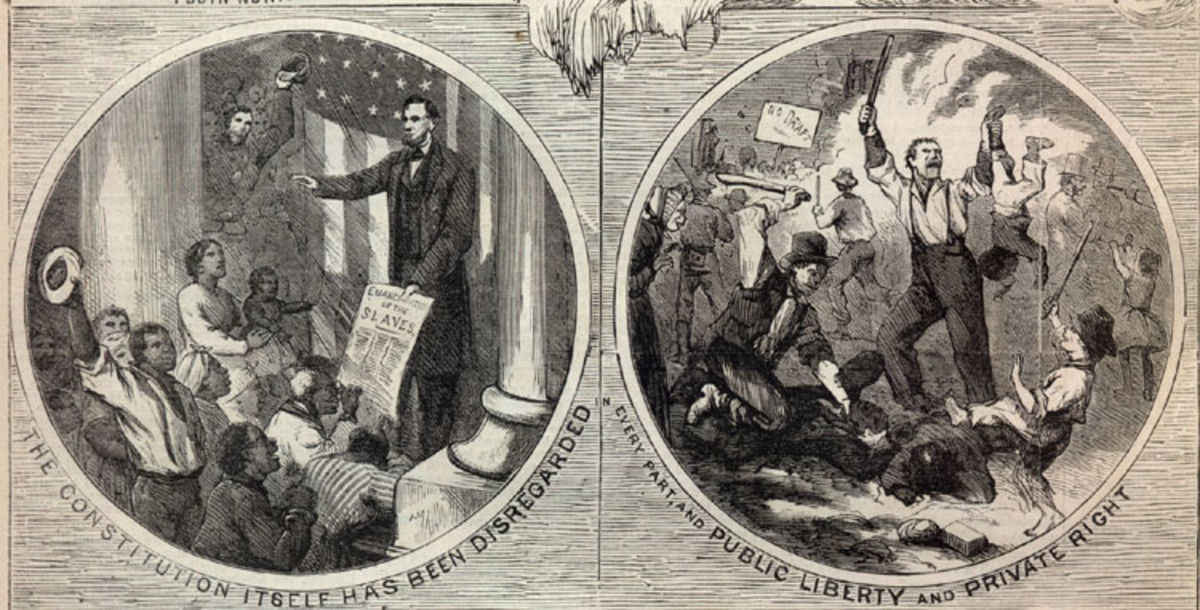The Mythical Creature Called The Social Liberal/Fiscal Conservative

The Mythical Social Liberal/Fiscal Conservative
Op/Ed
When you listen carefully to political debate and discussion, frequently what one finds is that two conversationalists are actually talking about two different things - without realizing it. The problem is that words are fluid, they drift over time. Words, over time, lose their meaning or see their effective meaning drift into something else. Today a word may start at 'A' and wind up at 'J' tomorrow.
What happens, then, is that one person is making an argument based on the meaning of a word from 'A' and the other person is heatedly making counterarguments with the seemingly same word(s) from the perspective of 'J.' Every so often, like a watch that needs to be wound up everyday, so too do we need to take some time to recalibrate the meaning of the words we use.
The expression social liberal/fiscal conservative is an example. I believe it is this erroneous term that was one undetected element in progressive disappointment, frustration, and confusion about President Bill Clinton. Don't forget progressives or the "base" of the Democratic Party were disappointed with him; they just voted for him anyway because they "had nowhere else to go."
Democrats are supposed to be social liberals, aren't they? Then why did Clinton sign such a punitive "welfare reform" bill? Why did he sign rather "anti-social" - when you think about it - telecommunications consolidation and financial deregulation legislation?
Perhaps Clinton could have been more accurately described as a legal liberal/social moderate-centrist/fiscal conservative. Time to define some terms.
Legal Liberal: someone who believes that all groups of people, races, genders, sexual orientations, religions, and the like deserve equal rights and access; should enjoy all the privileges, obligations, and responsibilities of American citizens. We're talking about the whole panoply of gay rights (including the whole LGBT community), affirmative action, women's rights including a woman's "right to choose," and so forth.
Now, you might think it is unfair and ridiculous of me to try to remove these categories from the realm of the social. After all, "minorities," like blacks, hispanics, native americans, and so on, do not just interact with themselves. They interact with broader America - though oftentimes in unfortunate ways for them. Nevertheless, in an obvious way minorities make up a part of the larger "social" fabric of the United States.
That is true. However the term social liberal/fiscal conservative represents an opinion about public policy. It represents your opinion about the proper relationship of one to the other, your view about the proper relationship of state expenditure to the various "social" needs of the population.
Keeping this in mind, we can say that the convenient thing about legal liberalism (as positive as I think it is) is that these policy positions do not call for public treasury spending to address the problems. This being the case, the policy categories have no relationship to your opinion about what state fiscal and economic policy should be.
Bill Clinton was definitely a fiscal conservative, focused as he was on balancing budget and reducing the deficit. While this means he could not have been a social liberal by definition, as I argue, perhaps he was a legal liberal.
Gay Rights?
But Clinton did sign "Don't Ask, Don't Tell" concerning gay soldiers in the military, didn't he? It looks like he was moderately center-right on that one.
Reproductive Rights (a woman's right to choose)?
His stated goal, as I recall, was to make abortion "safe, legal, and rare." While no one wants more abortions, but still, this is not exactly an unwavering commitment to a woman's right to control her own body..
I am not an expert on the Clinton administration. I don't know what he did or did not do on affirmative action. But whatever his accomplishments in this area, I would guess they are of a highly technical, legalistic nature, familiar only to those political junkies with specialized knowledge. We do know that during his election campaigns he had to be careful not to overdo it, as it were, with the traditional Democratic concern for socially and legally disadvantaged groups.
He was interested in capturing as many "swing" voters as possible. And swing voters, we are given to understand, do not like talk of race, class, or even gender. They respond best to arguments about how "a rising tide lifts all boats" - how a dynamic, expanding economy improves the lot of all. They are not interested in a politics of "us versus them," and so forth.
The nineties were the decade that introduced the world to the New Democrats.
All in all we have to say that Clinton was a legal centrist, fiscal conservative, and therefore, by definition a social conservative. But analyzing Clinton's political philosophy is complicated by the fact that during his eight years as president, he chose a strategy of "triangulation." By this we are given to understand that he co-opted the "best" proposals of the "opposition," the Republicans. He did this under the guidance of his long-time associate, the political strategist, Dick Morris.
Morris appeared on camera in The BBC documentary film by Adam Curtis called The Century of the Self, to explain his political philosophy. Morris said that politicians ought to be as responsive to voters as business is to consumers. You, as the politician, should look upon voters not as people whom you can dictate to and move to your position. Rather, you should look upon voters as people you can learn from and you (as the politician) should move yourself to meet the desires of the voters.
That, it would seem, is precisely what Clinton did. A reporter called James Woods appeared on camera in The Century of the Self, to say that Clinton used a pollster, Mark Penn, to poll suburban swing voters on various aspects of domestic policy. Would you be more in favor of the administration if they pursued this as opposed to that policy? It seems that they were even polled on aspects of foreign policy - to bomb or not to bomb Bosnia, etc.
What is social policy, then? What should we understand 'social' to mean - again, as it relates to state fiscal policy? Social is about those areas of national life that cut across genders, sexual orientation, ethnic groups, "races," age groups, religions, etc.
Poor people come in all ages, national origins, ethnic groups, races, both genders, and all sexual orientations. Poverty is a universal.
People trapped in low wage, low benefit, and even lower hope jobs are a universal, again, in that this includes people of all age groups, races, religions, etc.
Trade policy that pits less educated American workers against less educated workers of other developing countries is a social issue - in that these "less educated" American workers come in all religions, races, both genders, all sexual orientations.
On healthcare, the tens of millions of Americans that are underinsured or uninsured are a 'social' issue because these people belong to all ethnic groups, "races," age groups, religions, sexual orientations, and both genders.
Our medieval system of corporate patent protection, which makes prescription drugs thousands of times more expensive than they need to be - this is a social issue in that the consequences hit people in all the categories I mentioned.
The economist, Dean Baker's free online book, The Conservative Nanny State, is marvelously illuminative on these points.
These issues are social, in this context, because they demand a response from state fiscal policy. These matters have to do with what a state's "budget priorities" need to be. Either you are in favor of spending from the public treasury to address these problems or not so much.
If the latter is the case, you are a social conservative. You may or may not be a legal liberal. If the former is the case, then you are a true social - as I understand the term - liberal.
Its important to emphasize, here, that when Democrats, these days, do address true social issues, it is always in the context of assuring us how these measure will actually reduce the deficit, and how it will contribute to balancing the budget - or at least will not interferre with this sacred undertaking, anyway. They usually don't propose policies to alleviate true social suffering that are not "paid for." Here, we can label such moves vaguely "center-left" in character.
Its Democrats not Republicans who always use the phrase "pay-as-you-go government."
The "base" of the Democratic Party always want the politicians to be more liberal in the true social sense. But the party is in consensus with the Republican Party on social and fiscal matters. And true social liberalism is not what swing voters and their campaign contributors (let us not forget them) want to hear from democratic politicians.
What the Democratic politicians do is substitute legal liberalism for social liberalism, madly flee the dreaded "L-word," liberal, and then say to the base of the Democratic Party, "Where else you gonna go?" and call themselves "progressives."
Take the Democratic governor of New York, David Patterson. I don't know about you, but all I've ever heard about him doing, since taking office, is cutting social programs. We're in the midst of economic collapse, it's a fiscal emergency, the holy budget must be balanced, we have to make payment to this investment bank on this date. Then he'll march in a gay pride parade, work to soften the Rockefeller drug laws, and work to make gay marriage legal in the state, and all the rest of it.
These are fine things to be sure. But we should understand that the Democrats and Republicans are in a consensus on fiscal therefore true social policy; as well as foreign policy and defense/security policy with stylistic differences, technical distinctions, and tactical variations and disagreements. It is this consensus on these four areas of policy (social, fiscal, foreign policy, and defense/security policy) that cause people like Noam Chomsky, say, to describe the Democrats and Republicans as "two factions of the business party."
Let me say a word about cultural conservatism. Cultural conservatism, as I understand it, has to do with a narrow view of the American heritage and the American identity. Cultural conservatives reject "mutlticulturalism." They would like prayer in schools. They don't like the idea of separation of church and state; they think its wrong and contrary to the tradition given to us by the "Founding Fathers." They are in favor of such things like making English the official national language. They would like creationism at least equally represented alongside evolution in schools. They would like flag burning to be a crime. They see America as a Christian nation. And so on and so forth.
Cultural conservatism is the province of the Republican Party and its allies. Republicans tend to be more legally and culturally conservative. While the Democrats tend to be more legally and culturally, "live and let live," liberal (but don't use that L-word to them, call them progressives [this, by the way is a word that has had its meaning somewhat degraded over time; in the nineteenth and early twentieth centuries, the term 'progressive' was equally applied to Republicans as well as Democrats]).
Libertarianism - as we understand the term in America, it must be stressed - is an ideology associated with the Right. It has to do with what we might call negative liberty, the right of individuals not to be unduly harassed by the government. A libertarian would not go for affirmative action, since from his or her point of view, this would interfere with the rights of others.
But we can expect a libertarian to be in favor of abortion rights, the legalization or decriminalization of narcotics, gay marriage, etc. We can expect a representative in congress, with a libertarian streak to have voted against The Patriot Act and against giving amnesty to the telecommunications companies that worked with the government under the Bush administration to illegally spy on American citizens.
So there are nuances and differences between the two major parties - even if they are two factions of the business party. And even a radical dissenter like Noam Chomsky has a nuanced view. He says that the research has shown that over time, the broad population - outside the top one percent, that is - does better under Democratic rather than Republican regimes.
That's it, I guess, my tiny contribution to verbal housekeeping.








